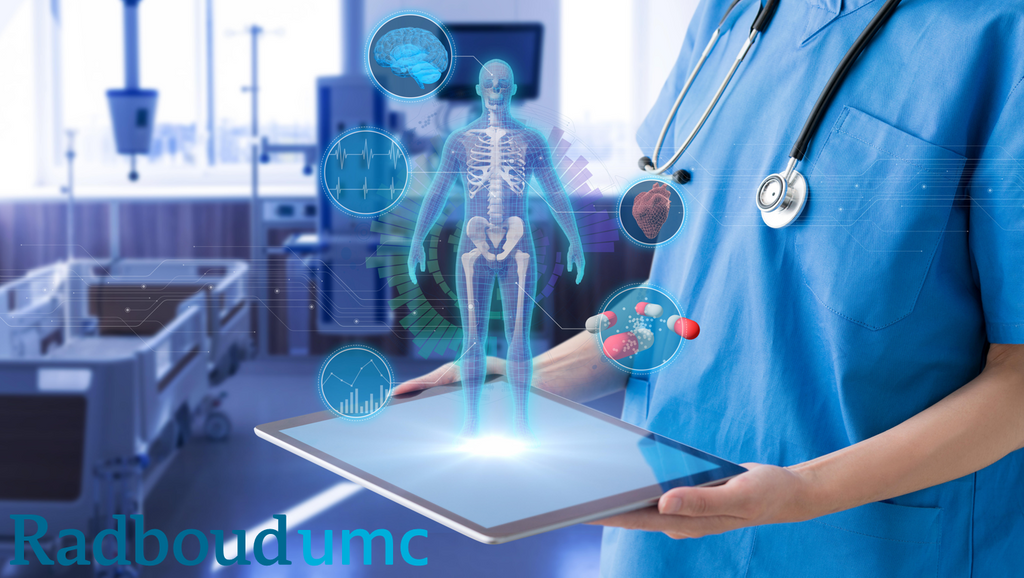Final presentations fifth AI for Health course

Friday, January 12th, 2024, the fifth AI for Health course concluded with a meeting where all participants presented their AI projects' results. 25 Radboudumc employees and external health professionals from different backgrounds followed the fifth edition of the course.
Radboudumc organizes the in-depth 16-day course teach healthcare professionals about the promising field of AI and the opportunities it has for healthcare applications. As part of the course, teams of participants performed an AI project. The presentations of these projects demonstrated the diversity of AI applications in healthcare.
Kristian Overduin, Luuk Oostveen, Sietske Bergsma, Wout Moerman and Peter David Faasse, work on Image analysis for liver tumor ablation. A major challenge in radiating liver tumors is to predict the ablation zone where tissue will be affected. This has to be wide enough to include the entire tumor, but any wider will destroy healthy tissue. The team build deep learning model that automatically segments this ablation zone, making it easier to assess the success of the radiation therapy. The model showed promising results, calling for further development to enable implementation in the clinical pipeline.
Kinsing Ko, Gerry Koons, Mariska Schroder, Bart Timmermans and Marike Lombaers worked on Mortality prediction after cardiac surgery. Before cardiac surgery, surgeons make use of a EuroSCORE prediction to assess a patients surgery outcome. While this EuroSCORE has a reasonable accuracy, it is not finetuned on the local population characteristics of the Radboudumc. The team investigated whether a model developed on our local population of patients might improve the prediction accuracy. The results showed a significant improvement of the models accuracy on our local population. A prospective study comparing the EuroSCORE to the local model will help to assess the clinical value of this algorithm.
Yvonne Geurts, Cilla Vrinzen, Casper de Visser, Junda Huang, Merle Boots and Asma Chaabouni worked on Prostate cancer recurrence prediction. For the detection of recurrence of prostate cancer, the prostate-specific antigen (PSA) is measured during follow-up care. Current predictions are only based on parameters measured at baseline, but not on the follow-up measurements of PSA. The team trained a model that included the follow-up PSA measurements to predict recurrence and significantly improved the accuracy of these predictions. Further development is necessary to optimize the follow-up care for patients and detect recurrence as early as possible.
Lucy Porter, Lotte Hazeleger, Reinier Akkermans, Janine Liefers, Marieke Zegers, Mark van den Boogaard and Kirsten Bos worked on Predicting quality of life after ICU. While over 80% of ICU patients survive, they often experience long-term physical, mental, and cognitive issues impacting their quality of life, highlighting the need for studying individual patient outcomes to improve post-ICU care. The team build a model to identify different patient subgroups with similar outcomes. These provided insights that enable more patient specific post-ICU care to these groups to improve quality of life after the ICU.
It was great to see all participants dive into the AI topics with enthusiasm and we hope it will provide them with new opportunities in their work.
← Back to overview